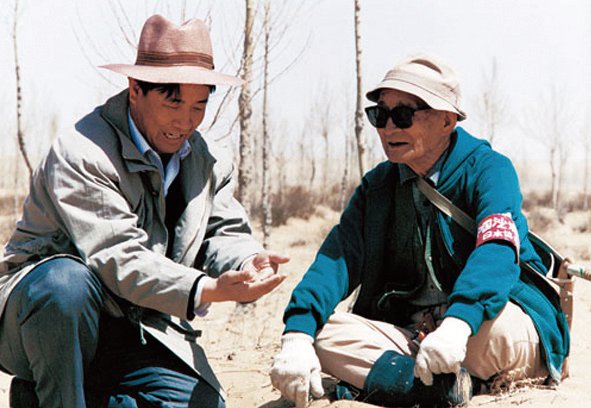International Exchange
My Hometown's International Exchange-Inner Mongol, China:
A Miracle in a Desert
Liu Cheng (Faculty of Economics, 3rd Year)
My hometown is Ordos, which is located in Inner Mongolia, China. In Mongolian, Ordos means palace. A long time ago, Genghis Khan went on an expedition to North Asia and he was so impressed with the beautiful landscape that he chose to build his own Imperial mausoleum in Ordos.
But as it hit the modern era, the ecological environment of Ordos was demolished due to war and a change in climate. The advancing desertification is becoming critical. There are 3600 million hectares of land, 25% of the entire world, which is under the influence. 900 million people, or one out of six people worldwide are affected. Desertification impacts farmlands and pastures, causing a reduction in food production.
The deterioration of food supply led to starvation and poverty, outbreak of refugees, and political unrest. For planet earth to retain as the star that holds life, we must prevent desertification and the forest from vanishing. Kubuqi, the biggest desert of Inner Mongolia, crossed the Ordos region and the desert of Ordos castle was known as Onkakubai.

In Mongolian, it holds a meaning of happiness and security. In 1950, Seijyou Tohyama, Professor Emeritus of Tottori University, Doctor of Agriculture, visited China as an exchange student. At the time, Ordos was very poor and desertification was serious. After seeing this, Professor Tohyama planted plants and vegetables. Not only did he want to help the natives he promised to regain a better environment for the world. Later, the tree-planting activity in China stood still due to the government. After forming a diplomatic Japanese-Chinese relationship, Professor Tohyama played an active part in newspapers, magazine interviews, television appearances, and seminars. He also conducted PR activities for desert developments, maintenance work, and vigorously spread a fundraising campaign to be able to plant trees in deserts. In 1990, Professor Tohyama visited the desert of Inner Mongolia once again. He brought candidates and planted trees everyday for ten hours. There were one million Populus tomentosa planted in 1995, two million Populus tomentosa planted in 1998, and surprisingly three million Populus tomentosa planted in 2001. Due to Professor Tohyama's invitation, 335 teams with more than 6600 people from Japan have proceeded to Onkakubai over a span of 10 years. They planted about 300 plants, which symbolizes the Chinese-Japanese friendship. Today, we have reached up to 3 million and 400 thousand Populus tomentosas. Professor Tohyama received the title of honorable citizen from the Inner Mongolia government and a civic award of consideration towards mankind from the United Nation. He also met with the Prime Minister of China, Jiang Zemin, and Li Peng.
Professor Tohyama's spirit touched many people's heart, and he was able to achieve respect from a great number of people. Though he is 90 years old, he has not stopped to think that desertification prevention will lead to world peace. Hopefully his spirit and the desert will never disappear. As long as there are people who grapple with the world environment, the mind and spirit of Professor Tohyama will remain. But the desert will vanish someday ...

